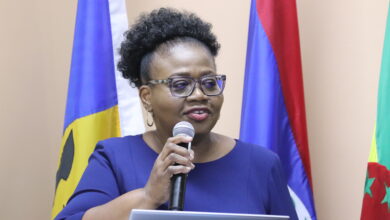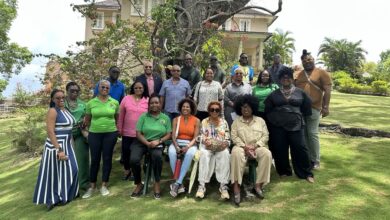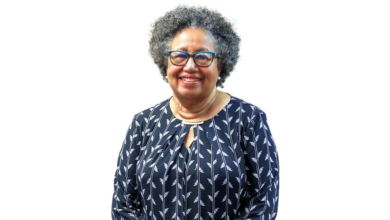It is a pleasure to warmly welcome all of you to the Twenty-Second Meeting of the Regional Cultural Committee (the RCC), a body that has been in existence for over 25 years, having first met on 6-7 June 1987 in Trinidad and Tobago.
A very special welcome to the representatives of Member States who are attending the RCC for the first time. It is a pleasure to welcome you into the CARICOM family of Directors of Culture and we expect that you will very quickly adapt and contribute to the collegial and productive atmosphere in which we are accustomed to working.
I thought that in my opening remarks that it would be useful for those who are new to the RCC to hear about some of the work this body has done over the past 2 decades and that it would be also good for those of us who have been coming to these meetings for a long time to reflect on where we have been and on some of our achievements.
The RCC has been instrumental in shaping cultural policy at the national and regional levels, by advising Ministers of Culture on the many issues on the Region’s agenda and infusing the regional culture programme with new ideas, new approaches and new attitudes.
The RCC was instrumental in the development of a Regional Cultural Policy which was completed in 1994 and which still serves as a reference document and a model for cultural policies in some Member States where policies are still being developed.
It was through the initiative of Directors of Culture that the CARICOM Foundation for Art and Culture was established by Intergovernmental Agreement in 1996 and the CARIFORUM Cultural Support Fund established in 2003. Although neither is operational at the moment due to lack of resources, they still represent important initiatives towards institution building in CARICOM.
The RCC continues to be at the forefront of the call the all for the restructuring of the Caribbean Festival of Arts -CARIFESTA, which led to the development of a Strategic Plan for the Festival in 2004; the establishment of an Interim Festival Directorate in 2006 and the phased introduction of the main elements of the new CARIFESTA model that emphasizes sustainability, more professional development opportunities for artists and better promotion of the event.
It has been the advocacy of the RCC that has contributed to greater understanding and attention being paid by governments in the region to the need to develop the cultural and creative industries in CARICOM. The RCC has consistently highlighted and demonstrated the tremendous untapped potential of these industries, which are based on the creative genius and talents of the people of the region. The RCC was also instrumental in guiding the work of the Regional Task Force on Cultural Industries that produced the Regional Strategy for the Cultural Industries in CARICOM between 2008 to 2012. The follow-up on this Strategy will be discussed in detail during the course of this meeting.
The RCC has also been actively engaged in advising on issues of Culture, Trade and the CARICOM Single Market and Economy (CSME) over the past decade. Directors of Culture have reviewed and advised on issues related to the Free Movement of Artists under the CSME, addressing the definition of “artist;” calling for a revision of the terminology “artistes and musicians” in the Revised Treaty of Chaguaramas to “artists and cultural workers” as more inclusive terminology; and highlighting anomalies such as the fact that artists were free to move, but their tools of trade or tools of art were not free to move with them due to customs barriers. The RCC also provided advice during the negotiations of the Cultural Protocol III which forms part of the Economic Partnership Agreement and is currently providing similar advice in the negotiation of the culture provisions under the CARICOM Canada Trade and Development Agreement.
The RCC has highlighted the need for greater attention to issues such as culture in education; the need for better infrastructure to present and teach the arts in Member States; for cultural heritage preservation and development; intellectual property management; and has provided oversight of several regional projects that were implemented with funding from the European Development Fund, UNIDO, UNESCO and the Hub and Spokes Trade Project over the past two decades.
Two very current issues on our agenda, name Reparations for Native Genocide and Slavery and the CARICOM Song Competition, are ones in which Directors of Culture have also been actively engaged.
The RCC continues to play a very important role in advancing cultural development in our region and remains committed to the ideals of the founders of this Forum, where we see culture as central and pivotal in building stable, cohesive societies based on respect for our cultural and ethnic diversity, and where we see culture as the foundation on which we build our regional cooperation and identity. Our shared traditions, experiences and aspirations inevitably and organically found natural expression in the partnership we now know as CARICOM.
So welcome again to Guyana and to the CARICOM Secretariat Headquarters and I look forward to a successful meeting, and to new and renewed friendships.
Thank you.






